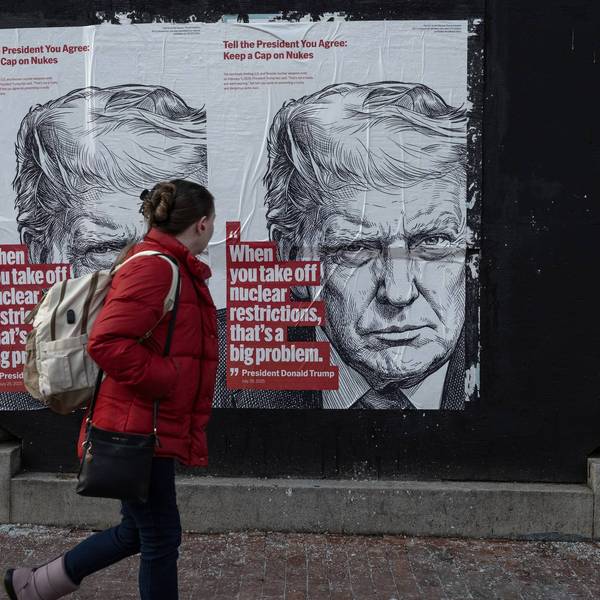The Russian government is regarding U.S. moves to increase and upgrade its low-level nuclear arsenal as a sign that the White House is prepared to use nuclear weapons as a political option on the world stage.
"Washington is not just modernizing its nuclear forces, but is striving to give them new capabilities, which greatly expands the likelihood of their use," Russian Foreign Ministry spokeswoman Maria Zakharova said Friday.
Zakharova told reporters that the U.S. increase in nuclear weapons capabilities earlier in the year, when the military deployed a low-yield ballistic warhead to its submarines, reduces the threshhold for using the weapons and brings the world closer to the possibility of nuclear war. As Common Dreams reported, the move was seen by International Campaign to Abolish Nuclear Weapons treaty coordinator Tim Wright as "an alarming development that heightens the risk of nuclear war."
"Of particular concern is the expansion of the range of U.S. low-yield weapons in its nuclear arsenal, including the development and deployment of such munitions for strategic carriers," said Zakharova.
The U.S. in February angered Russian officials for a war game in which the Pentagon ran a scenario where Russia attacked a NATO ally with a low-yield nuclear weapon and the U.S. responed with a "limited" nuclear strike.
According to RT, the Russian government's concerns are based in part on the U.S.'s nuclear doctrines:
Unlike Russia, the U.S. never made a formal commitment not to be the first to use nuclear weapons in a conflict. Russia's nuclear doctrine says it may use nuclear weapons in response to a conventional attack that threatens the existence of Russia as a sovereign state, but otherwise the nuclear option would only be used in response to an attack with weapons of mass destruction.
As the Washington Physicians for Social Responsibility's Bruce Amundson and Joseph Berkson wrote for the Seattle Times in February after the U.S. deployment of low-yield weapons was announced, the deployment raises the risk of overreaction and escalation:
To an adversary, a submarine-launched missile with a low-yield nuclear warhead would likely be completely indistinguishable on radar from missiles armed with high-yield bombs. Therefore, an adversary may respond to such a launch with a full attack, immediately escalating the conflict to full nuclear war. This dramatically increases the chance of a nuclear exchange due to miscalculation or human error.
In her remarks Friday, Zakharova said Moscow was treating U.S. moves as a sign the country "has made a decision to consider a nuclear conflict as a viable political option and are creating the potential [scenario] necessary for it."
President Donald Trump and his administration have been reluctant to commit to renewing the Nuclear Nonproliferation Treaty in April 2021. The treaty turned 50-years-old on March 5, leading United Nations General Secretary Antonio Guterres in a statement to call on treaty signatories to recommit to world peace.
"The Secretary-General calls on States parties to make the most of this opportunity to strengthen international peace and security through the promotion of non-proliferation of nuclear weapons and nuclear disarmament, as well as measures to strengthen implementation of the NPT and achieve its universality," said Guterres.




